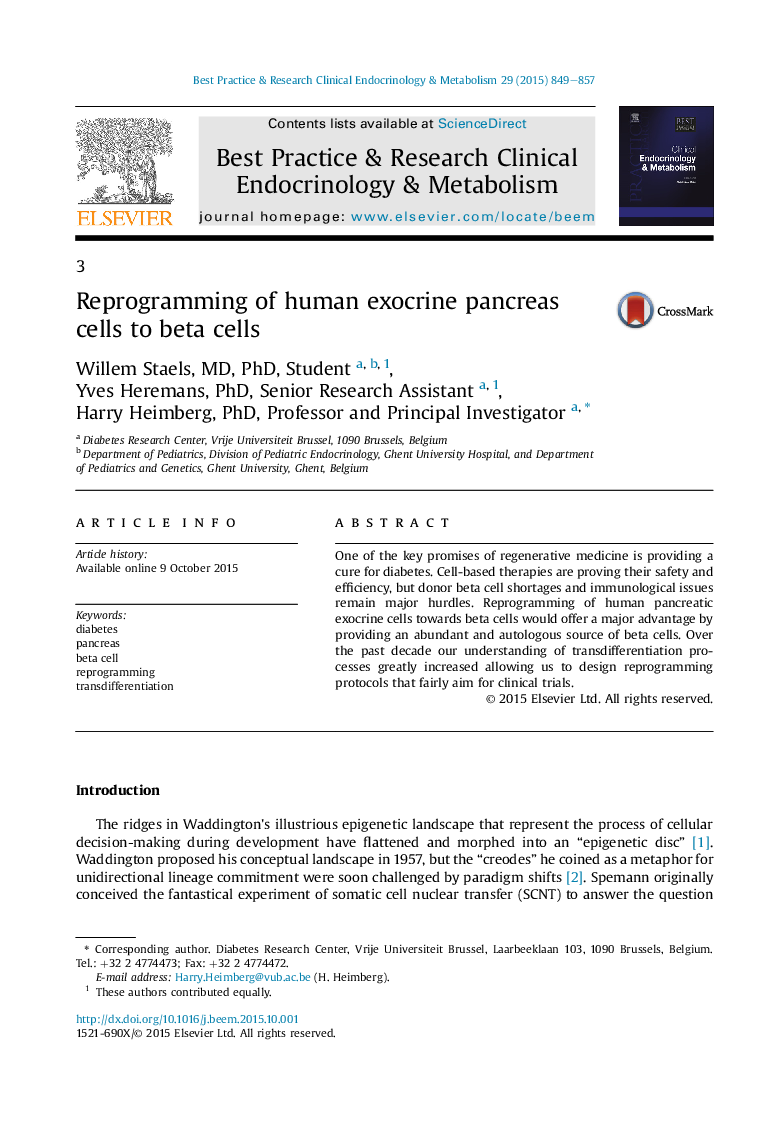| Article ID | Journal | Published Year | Pages | File Type |
|---|---|---|---|---|
| 2791525 | Best Practice & Research Clinical Endocrinology & Metabolism | 2015 | 9 Pages |
Abstract
One of the key promises of regenerative medicine is providing a cure for diabetes. Cell-based therapies are proving their safety and efficiency, but donor beta cell shortages and immunological issues remain major hurdles. Reprogramming of human pancreatic exocrine cells towards beta cells would offer a major advantage by providing an abundant and autologous source of beta cells. Over the past decade our understanding of transdifferentiation processes greatly increased allowing us to design reprogramming protocols that fairly aim for clinical trials.
Related Topics
Life Sciences
Biochemistry, Genetics and Molecular Biology
Endocrinology
Authors
Willem Staels, Yves Heremans, Harry Heimberg,
